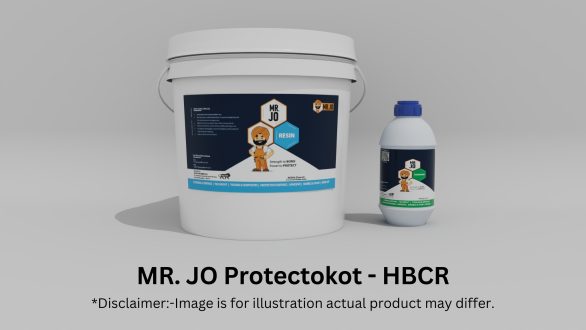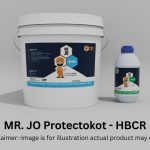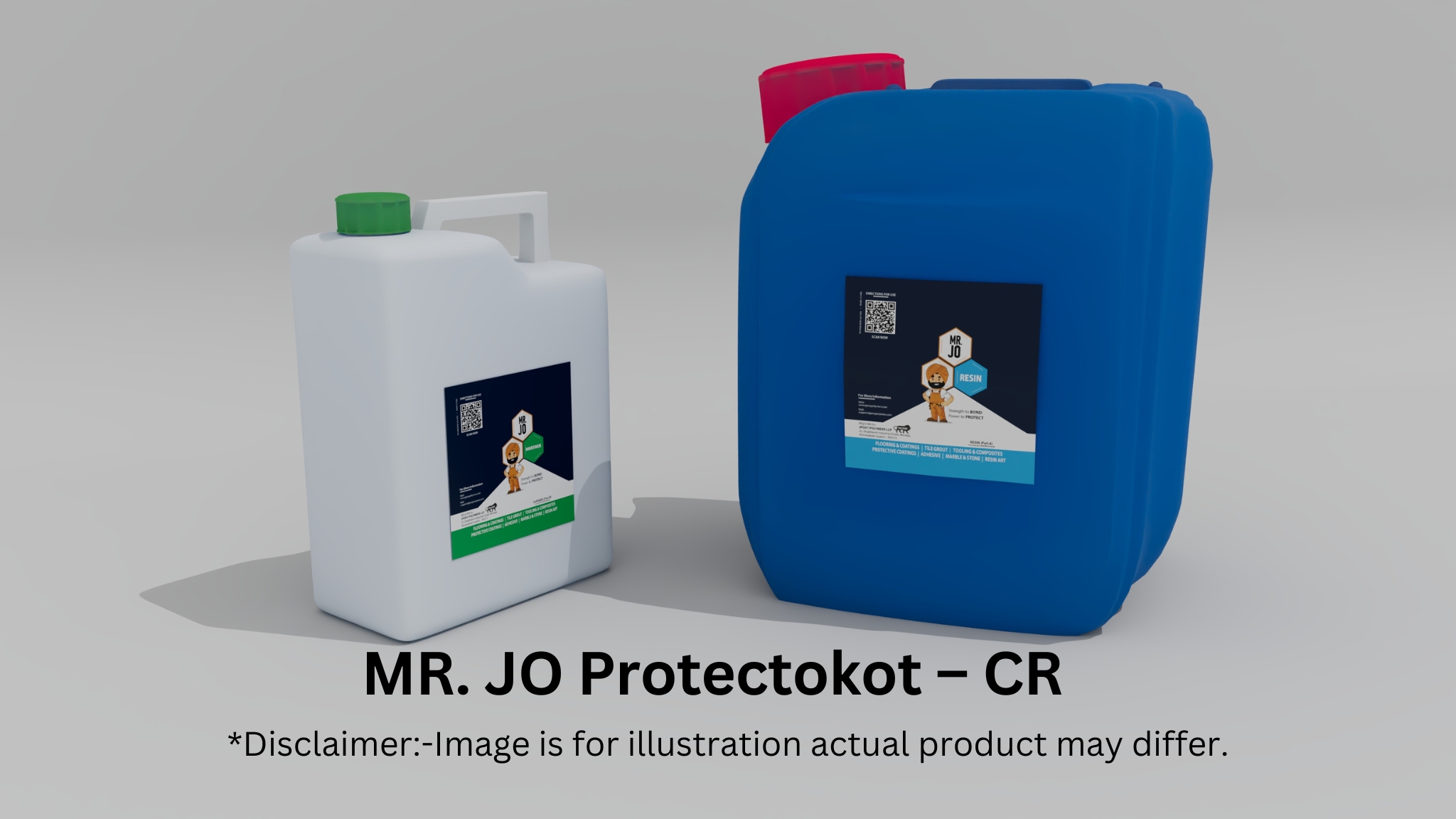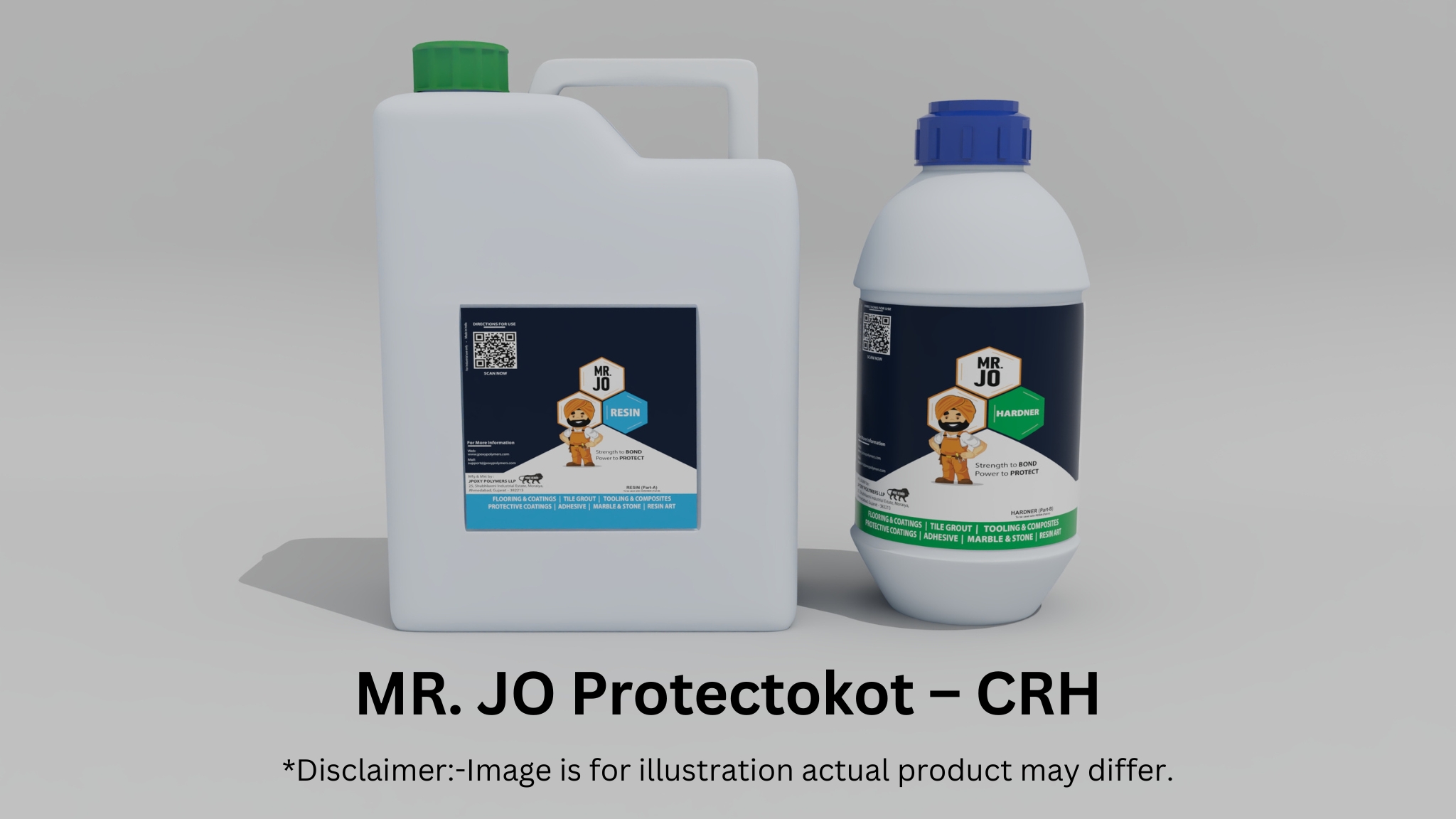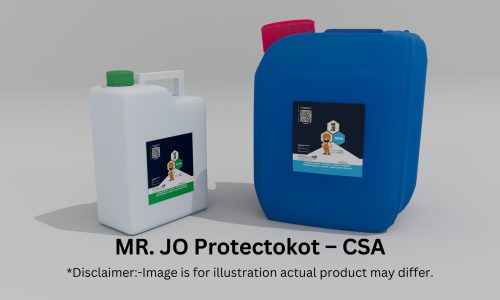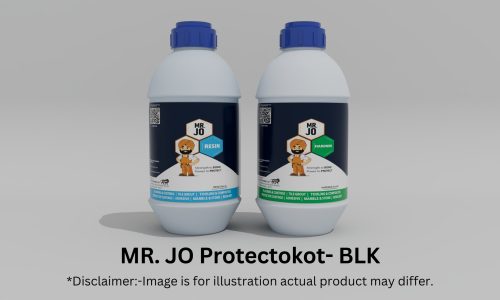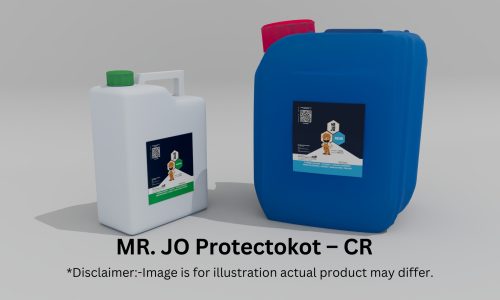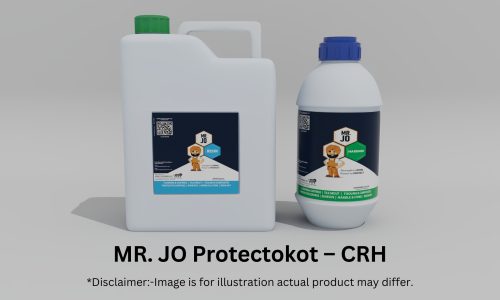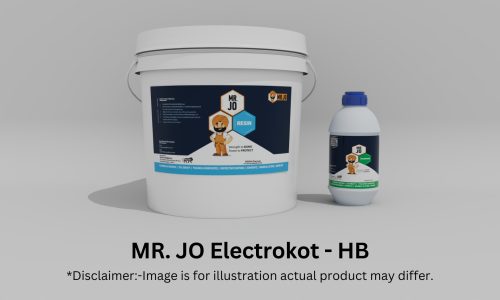MR. JO Protectokot – HBCR
₹6,336.00 – ₹24,076.00 Inclusive of all taxes
Two component high build chemical resistant epoxy coating which provide chemical as well as mechanical resistance.
- Description
- Properties
- Applications
- How To Use
- Technical Data Sheet(TDS)
- FAQs
Description
Mr. JO Protectokot – HBCR is a high-build epoxy system. It is solvent-free and very strong. It Resists chemical and physical damage. Therefore, it keeps surfaces safe and durable. In addition, it handles tough conditions and lasts for years. Many industries trust it for protection. Also, it is easy to apply and covers surfaces fast.
- Color: Green
- Pot life @25°C: 20-30 mins
- Mixing Ratio: 100:14 PBW
- High build with chemical resistant
- Mixture consistency: Thick brush able liquid
- Coverage : 3 m2/kg/coat
- Optics: Opaque
- Petroleum industry
- Fertilizer industry
- Marine industry
- The mixture should be applied on a clean and rough surface. For good results, it is required that the substrate is free from loose particles.
- Suitable degreasing agent should be used to remove any grease, oil or traces on the surface.
- Repair the surface if damaged. Allow 2-3 hours for surface of repaired area to dry. Choose a suitable product from Jpoxy’s JO range of Adhesives for repairing.
- Apply primer for better adhesion on substrate. Allow 4-5 hours for surface of repaired area to dry. Choose a suitable product from Jpoxy’s JO range of Primers.
- Mix the two components in small batches thoroughly for at least 2minutes. Apply the mix using brush or spatula to the pretreated surfaces.
- Allow 4-5 hours for surface to dry and 24 hours to achieve full strength.
A1. MR. JO Protectokot – HBCR is a high-build, solvent-resistant epoxy coating ideal for:
- Chemical storage areas
- Battery charging zones
- Process tanks and industrial plant floors
- Concrete or metal surfaces exposed to aggressive chemicals
A2. It is supplied in a green color, providing easy visual identification in chemical environments.
Q3. What is the mix ratio?A3. The product is mixed at 100:14 by weight (Resin: Hardener). Mix thoroughly for a smooth, uniform consistency.
Q4. What makes MR. JO Protectokot-HBCR different from standard epoxy coatings?A4.
- Superior resistance to a wide range of solvents and aggressive chemicals
- High film build in fewer coats
- Better durability in corrosive or process-heavy environments
A5. Yes. HBCR adheres well to both concrete and metal substrates, especially when used with a suitable epoxy primer.
Q6. Is MR. JO Protectokot – HBCR a high-build system?A6. Yes — it is designed for high film thickness, allowing 200–300 microns per coat without sagging. This reduces the number of coats required while ensuring excellent chemical protection.
Q7. How many coats are typically needed?A7. One to two coats are sufficient for most applications. Apply the second coat after the first becomes tack-free (~8–12 hours).
Q8. What primer should I use before applying MR. JO Protectokot-HBCR?A8. For optimal bonding:
- On dry concrete: use MR. JO Primer-MVC or LVC
- On damp or underprepared concrete: use MR. JO Primer-UPS
- On metal: ensure grit-blasting or roughening + primer for corrosion resistance|
A9. Approx. 3–4 m²/kg/coat, depending on the substrate and thickness.
Q10. What tools are used for applying MR. JO Protectokot-HBCR?A10. Use a roller or brush for even coating. For high-build consistency, use a notched trowel or squeegee if needed.
Q11. How long does it take to cure?A11.
- Touch dry: ~6–8 hours
- Recoatable: 8–12 hours
- Full cure & chemical resistance: 5–7 days
A12. Yes. Once fully cured, it resists a wide range of solvents, acids, alkalis, and industrial chemicals. Refer to the chemical resistance chart for specific compatibility.
Q13. Is the coating UV-stable?A13. Like most epoxies, prolonged UV exposure may lead to some chalking or discoloration. For outdoor applications, use a UV-stable topcoat if aesthetics matter.
Q14. Can MR. JO Protectokot-HBCR be used in food-processing zones?A14. It is designed for industrial chemical protection, not certified for direct food contact. Use appropriate certified coatings for food-grade applications.
Q15. Can it be recoated later if damaged?A15. Yes. Clean the surface, sand lightly, and reapply. Ensure old layers are well-bonded and dust-free.

